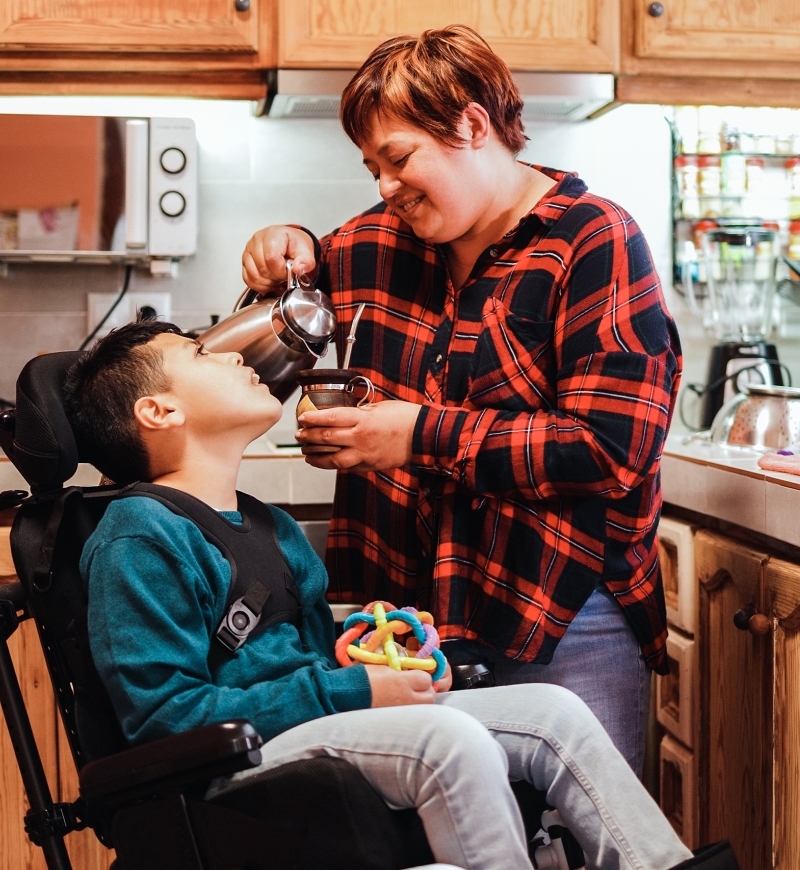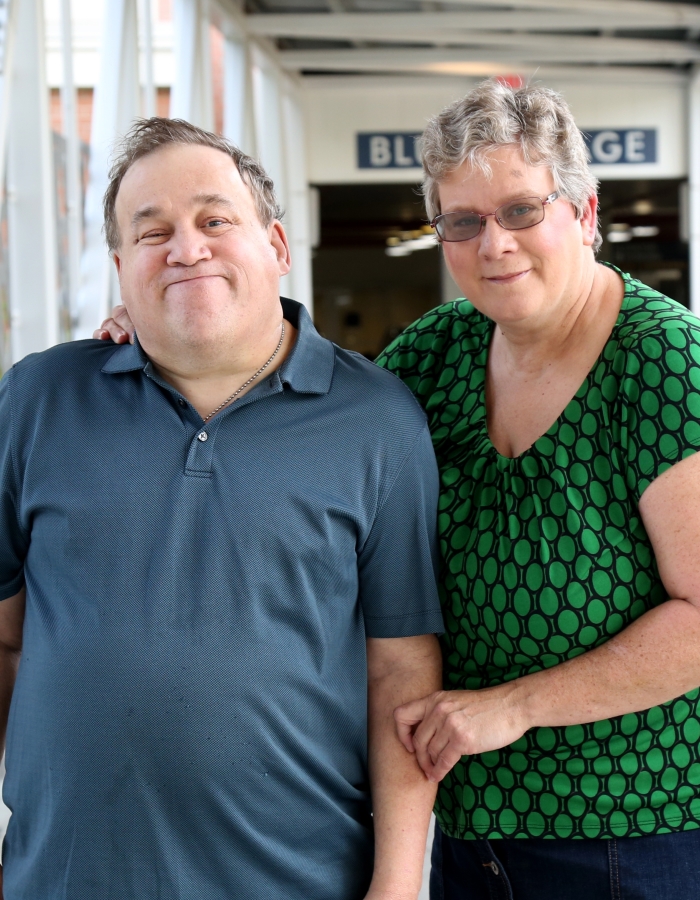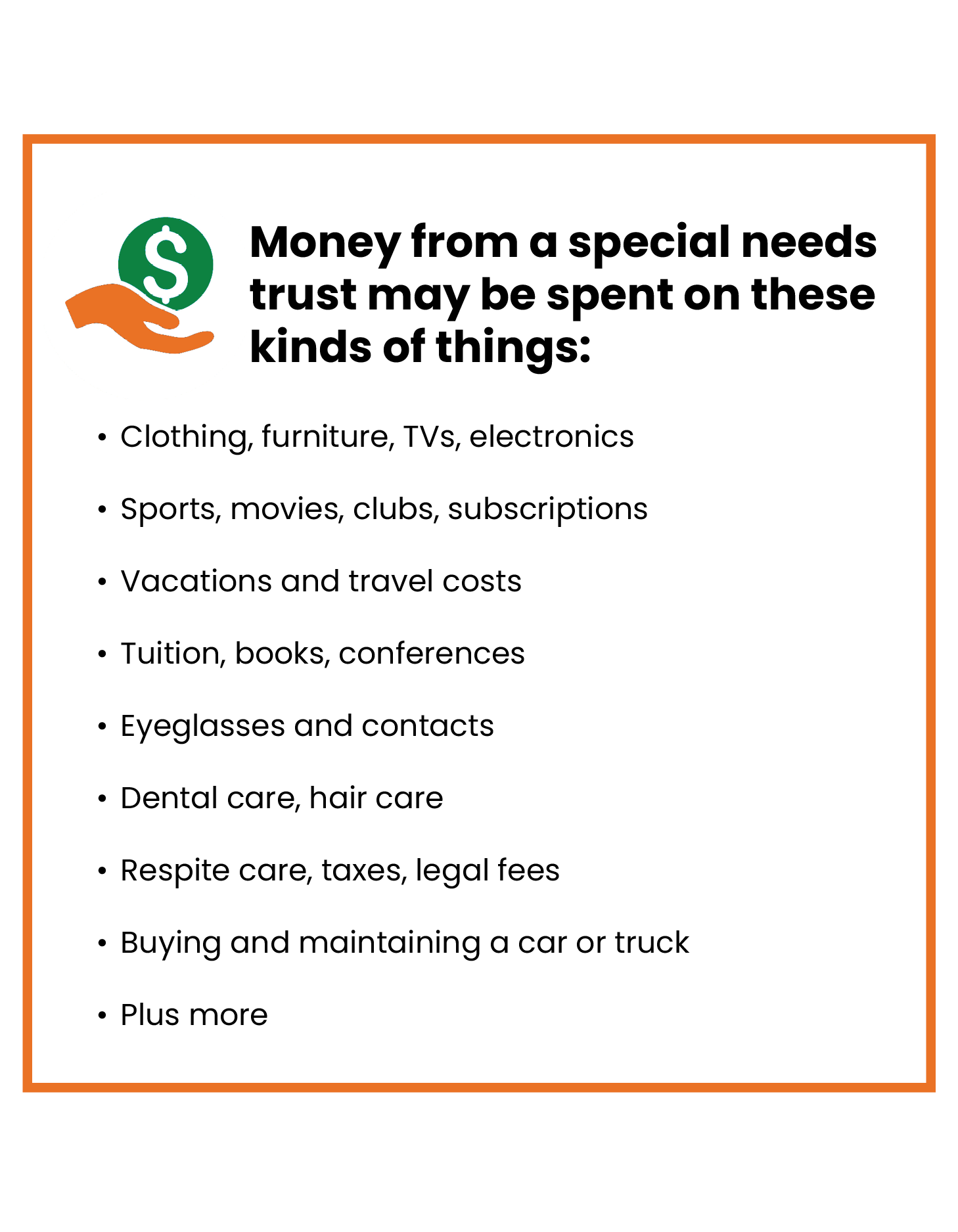Trust Basics
Special Needs Trust Basics
What if?
That’s the question parents ask themselves about the future of their child with a disability.
Many things are out of your control. But money for the future doesn’t have to be one of them.
What if… you could make sure your child has a way to be happier and more secure?
What if… you could make sure government benefits aren’t threatened by unexpected money?
What if… you could make sure your child’s money is managed by experts in finance and disability policy?
What if… you could put this into place now?
You can.


What is a Special Needs Trust?
A special needs trust is a reliable way to set aside money for the future of someone with a disability.
It’s like other trusts in many ways. Money may be put in a trust for a beneficiary, someone who needs help managing money. Part of setting up a trust is choosing a trustee. That’s the person who controls and manages the money for the beneficiary. Key Bank is the trustee if you set up the trust with The Arc of Northern Virginia.
Trusts may also have a trust manager to help with day-to-day tasks on behalf of the beneficiary. In The Arc of Northern Virginia’s trust program, The Arc is the trust manager. We help with day-to-day tasks on behalf of the beneficiary.
Government benefits depends on a person’s assets and resources AND diagnosis and functionality. Money in a special needs trust is not controlled directly by the person with a disability. As a result, money in a special needs trust doesn’t affect government benefits as long as it is being spent appropriately.
However, government agencies limit how money from a trust can be used. Many special needs trusts are set up with rules about what the money can be used for. And only a certain amount of money can be drawn from the trust at a time.
If a special needs trust is managed well, it’s a great way to save for the future and protect government benefits.
Our staff is ready to help you understand, plan and create the special needs trust that’s right for you.


How can I use a Special Needs Trust?
A special needs trust can be used to buy things that make the beneficiary’s life better.
It can be used for clothing and luggage. It can be used for vacations and vehicles. It’s for education, medical needs, entertainment, subscriptions, sports, health clubs and much more.
But certain government rules may restrict what special needs trust money can be used for. For example, if the beneficiary receives SSI, using the trust to pay for food and shelter (rent & utilities) may reduce the beneficiary’s SSI benefits. The money in a special needs trust is meant to supplement benefits and add enjoyment to the beneficiary’s life.
The Arc of Northern Virginia works with families and individuals to comply with government rules. Our staff also minds the budget and other circumstances of each client.
We work as a team to make sure each beneficiary gets the right amount of help from trust funds while safeguarding benefits.
Learn more about how the payment request process works on our “Using the money in your Special Needs Trust” page.

Choose the Right Special Needs Trust for You and Your Family
The Arc of Northern Virginia offers two kinds of special-needs trusts. Family-funded trusts and self-funded trusts both work in the same ways. The one that’s right for you depends on your circumstances.

Your Support Makes Our Work Possible
As a 501(c)(3) nonprofit organization, The Arc of Northern Virginia relies on private support from individuals, corporations, organizations, and foundations to fund our efforts. Your generous donations help make it possible for us to provide programs, services, and advocacy so that people with IDD can live “A Life Like Yours.”

Stay Informed with the Latest News and Updates
